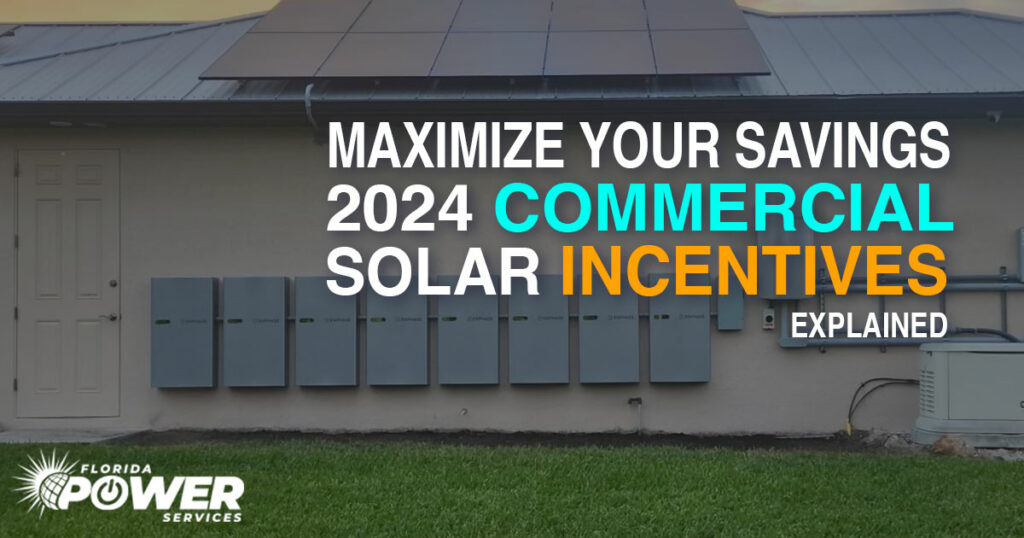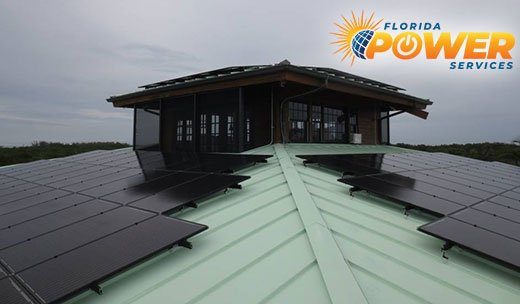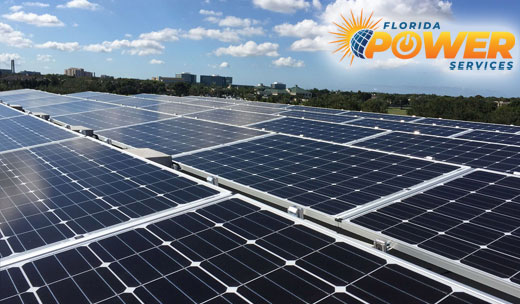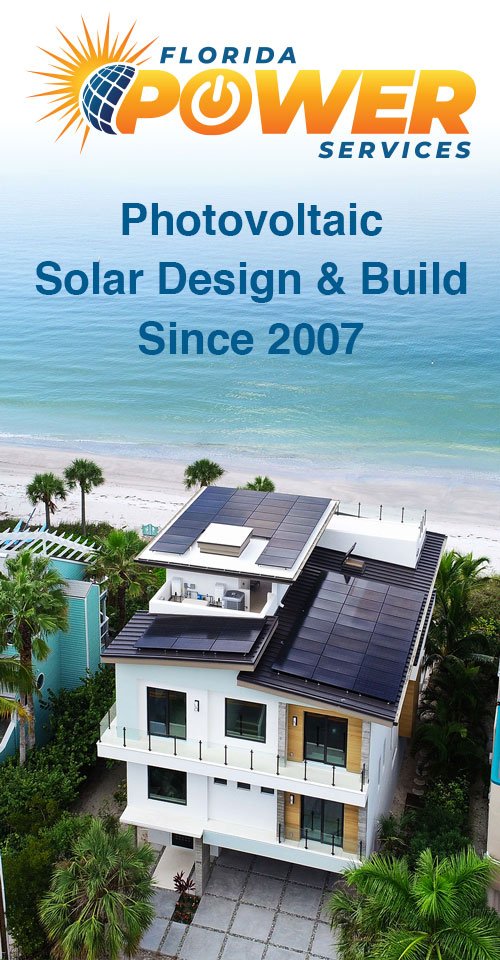As we progress into 2024, it’s important for businesses to know about the range of commercial solar incentives designed to make solar energy adoption not just possible but financially appealing. These incentives play a big role in a company’s shift to renewable energy, offering various benefits such as tax credits, exemptions, and rebates that directly affect the bottom line.
Why Commercial Solar Incentives Matter
Commercial solar incentives are crucial for two main reasons:- They help businesses save money on their initial investment in solar installations.
- They reduce the payback period by lowering operational costs over time.
Federal Solar Tax Credit (Investment Tax Credit or ITC)
The Federal Solar Tax Credit, also known as the Investment Tax Credit (ITC), stands as a pivotal federal incentive for commercial solar energy adoption. It allows businesses to deduct a significant percentage of their solar installation costs from their federal taxes, thus reducing the overall financial burden and accelerating return on investment.How the ITC Works:
- Businesses installing solar systems can claim the ITC for a whopping 30% of the cost of the system.
- The credit applies to both the cost of materials and installation.
- There is no maximum limit, meaning substantial projects reap sizable rewards.
Eligibility Criteria:
- The solar system must be new or being used for the first time.
- It should be located in the United States.
- The business claiming the credit must own the solar energy system.
Phase-Out Schedule:
- The ITC currently values at 30%, but watch out, this won’t last forever.
- Scheduled reductions begin in 2033, dipping to 26% and further to 22% in 2034.
- After 2034, commercial projects will no longer be eligible for this credit.
Real-Life Financial Benefits:
Picture this: A Florida-based manufacturing company installs a $100,000 solar panel system. They’re eligible for an immediate tax credit of $30,000! This slashes their project cost to $70,000 right off the bat. With additional operational savings from generated solar power, this company exemplifies how savvy businesses leverage the ITC to boost their bottom line while embracing sustainability. By understanding and utilizing these incentives effectively, businesses can significantly reduce initial costs and enhance their energy independence. Moving forward into other incentives will reveal even more opportunities to maximize savings with solar investments.The Domestic Content Adder
You can also reduce your cost by an additional 10% thanks to an extra solar tax credit offering called the ‘Domestic Content Adder’. This is a tax incentive that further reduces installation costs if their PV system includes domestically produced hardware and/or imported products which meet specific quality requirements. We’re delighted to say that Florida Power Services ‘The Solar Power Company’ offers system designs that qualify for this extra 10%! You could save a total of 40% on your solar installation! You could save thousands of dollars! Please ask about how to qualify, during your initial phone call.State-Level Incentives: A Focus on Florida
Florida has implemented a variety of commercial solar incentives to promote the use of solar energy, one of which is the sales tax exemption. This exemption offers significant financial benefits for businesses considering solar investments, as it saves them from paying the state’s 6% sales tax on solar energy system purchases.Understanding the Sales Tax Exemption
To qualify for the sales tax exemption in Florida, businesses must meet the following criteria:- Purchase or lease eligible solar energy equipment that is certified for performance by the Florida Solar Energy Center.
- Use the solar system in a business setting within the state.
The Financial Impact of Sales Tax Exemption
The savings resulting from the sales tax exemption are straightforward and measurable:- For every $100,000 spent on commercial solar equipment, businesses can immediately save $6,000 through this tax exemption.
- It’s important to note that this exemption applies not just to solar panels but also to other related components like solar heaters and combined heat and power systems.
Advantages for Businesses
The sales tax exemption offers several advantages for businesses considering solar installations:- Reduced Upfront Costs: By lowering the initial expenses associated with purchasing and installing new solar energy systems, companies can allocate their funds elsewhere, such as towards day-to-day operations or additional sustainability initiatives.
- Shorter Payback Period: With lower upfront costs, the time it takes for a solar installation to pay for itself (known as the payback period) is also shortened. This makes investing in solar technology even more appealing from a financial standpoint.
A Boost to Other Incentives
For businesses exploring renewable energy options in Florida, the sales tax exemption works hand-in-hand with other incentives like the Federal Solar Tax Credit (ITC). This combination of federal and state-level benefits further strengthens the economic argument for transitioning to solar power. As businesses navigate these incentives, they discover that embracing commercial solar technologies not only aligns with their financial objectives but also showcases their dedication to environmental responsibility.2.2 Property Tax Exemption
Florida’s sunny disposition isn’t just great for beach days, but it’s also prime for harnessing solar energy. Businesses in the Sunshine State can use the favorable solar energy landscape to their advantage, especially when it comes to financial incentives like the Florida property tax exemption.Understanding the Property Tax Incentive
Businesses that install solar energy systems are eligible for a property tax exemption. This means that the additional value brought by these installations to commercial properties will not be taxed further. Over time, this can result in significant savings.Key Details about the Property Tax Exemption
Here’s what you need to know about this incentive:- Eligibility: To take advantage of this incentive, businesses must have a dedicated solar energy system installed on their property.
- Benefits: The exemption applies to 100% of the assessed value added by the solar installation.
- Long-Term Value: In addition to immediate tax savings, this incentive is also likely to increase your property’s market value. An updated feature that reduces utility costs and carbon emissions? It’s a win-win situation.
Renewable Electricity Production Tax Credit (PTC)
The Production Tax Credit (PTC) is a key incentive that rewards the generation of renewable energy, including solar power. Here’s what business owners should know:- Financial Benefit: Receive a credit for each kilowatt-hour of electricity produced.
- Eligibility: Typically applies to large-scale solar projects that contribute significantly to the power grid.
- Duration: Provides benefits over a 10-year period, enhancing long-term sustainability.
Financial Analysis: Costs, Savings, and ROI for Commercial Solar in Florida
When looking at the numbers, commercial solar installation costs in Florida vary based on factors like system size and equipment quality. Though these systems carry a hefty upfront cost for some, these initial costs are balanced out by significant savings potential in the long run. Just recently we’ve installed solar panels on a 40 kWh system in Englewood using the ultra reliable Enphase batteries. Systems such as these reinforce the ROI of solar panels through the use of the most up-to-date technology ensuring long lasting quality.What are the Costs and Savings?
Here’s a breakdown of what businesses can expect:- Federal Investment Tax Credit (ITC): Thanks to a current federal tax credit businesses can claim 30% of their solar installation costs.
- 10% Domestic Content Adder: All Florida Power Services’ installations qualify for the Domestic Content Adder which allows you to claim an additional 10% of your solar cost as a Tax Credit.
- State-Level Incentives: Florida also offers sales tax exemption and property tax exemption, which further reduce the overall cost.
- Energy Bill Savings: On average, a system producing about 1,500 kWh/year per kW could save you around $1,050-$1,190 every year at Florida’s electricity price of $0.14/kWh.
- Modified Accelerated Cost-Recovery System (MACRS): Your solar system is also qualified for depreciation which further reduces your yearly tax bill.
- Renewable Electricity Production Tax Credit (PTC): Grants a credit for each kilowatt-hour of electricity produced.
- Return on Investment (ROI): All these factors combined result in a more favorable timeline for recovering your initial investment.
Key Considerations in Adopting Commercial Solar Technologies
When it comes to maximizing savings with commercial solar incentives, it’s essential to recognize that every business has unique financial landscapes. Here’s a friendly heads-up: tapping into solar incentives can be complex, with varying implications for each company. To navigate this:- Seek Professional Guidance: Don’t go at it alone; enlist the help of a qualified tax professional or financial advisor. They can clarify how specific incentives apply to your business and ensure you reap the full benefits.
- Tailored Financial Strategies: Your advisor can develop strategies that align with your business goals and maximize your solar investment.
- Regulatory Compliance: Professionals keep abreast of the latest tax laws and incentive structures, making sure your business stays compliant while optimizing savings.
Incentive Resources
- 30% Federal Tax Credit (IRS Form 3468)
- MACRS (IRS Form 4562)
- FL Sales Tax Exemption
- 10% Domestic Content Adder
- FL Sales Tax Exemption
- Property tax Abatement

















